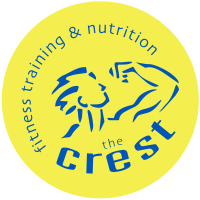Nutrition Basics
WHEN IT COMES TO DIET AND NUTRITION,
TIMING IS EVERYTHING.
Since your muscle tissue needs nutrition every three to four hours, it makes sense to time your meals three to four hours apart during a day. The optimum daily meal schedule would be to eat 4 to 5 times per day for fat-loss and lean muscle maintenance, and six plus times per day for muscle gain.
1. Time Your Meals and Eating Right

2. Watch your Glucose
Your brain’s only source of energy comes from Glucose, which is what all carbohydrates assimilate into when digested (both simple and complex carbohydrates, but complex carbs have soluble fiber and are the focus of your carb intake). Consult the Glycemic food charts to select the complex carbs with the lowest glycemic ratings, so the glucose “conversion” will release into your blood stream at a slower rate, disallowing the storage of excess glucose into adipose tissue, otherwise known as fat.
3. Eat, Sleep, Be Merry
Eat what you need based on your daily caloric intake, don’t over-eat. Avoid eating late at night, as this food will most likely result in fat storage, unless it is very low in calories, high in protein and from complex carbohydrate sources that are very low in their glycemic rating. Eating late may also hinder you from having a restful night’s sleep, as the food digesting in your stomach may interfere with you being able to get into REM sleep. REM is the deepest sleep, and it during this that your growth hormone is released, giving biochemical signals to your system to burn the fat stored in your body, and keep your muscle tissue lean and healthy throughout. Your body only “heals” during sleep, you need at least eight hours of sleep per night.

4. Most Important Meal of the Day
Eat your first meal early in the morning, so that you will be able to fit the other 3 to 5 meals into your schedule and time them accordingly throughout the day. Yes, breakfast is the most important meal of the day, followed by your post-workout meal. Your post-workout meal should be consumed within 30 minutes after you exercise, while your body is craving the replenishment of glycogen stores, which were depleted during exercise. Your pre-workout meal is the next most important meal, but be careful not to overeat on this one, and give yourself one to two hours of digestion before exercising. Try to get half of your daily food from fresh fruits and vegetables and remember that cooking them depletes the nutrients. Please do not consider the food-like substance sold at most fast food restaurants real food. The momentary convenience of fast food is not worth the excess fats and absence of nutritional value. Remember, most people store body fat not necessarily from over-eating, but from under-nourishing their bodies.
5. Do Your Body Right
To your body, digestion is considered work, and the more work you make your body perform, the more energy you burn, raising your metabolism while supplying the needed nutrition to get healthy and fit. We call this “getting a workout from the inside out.” This means your body uses much more stored body fat to fuel your digestive system during aerobic or cardiovascular exercise. Dieting and doing more cardio than necessary doesn’t work to help you get lean; this is a lifestyle change for the better. So eat more, exercise less and if you want to give your digestive system a rest, fast one day out of the month drinking only water, protein shakes and fruit/vegetable juices. This combined system creates a healthy lifestyle that will put you well on your way to feeling great on the inside, doubled with looking great on the outside.
